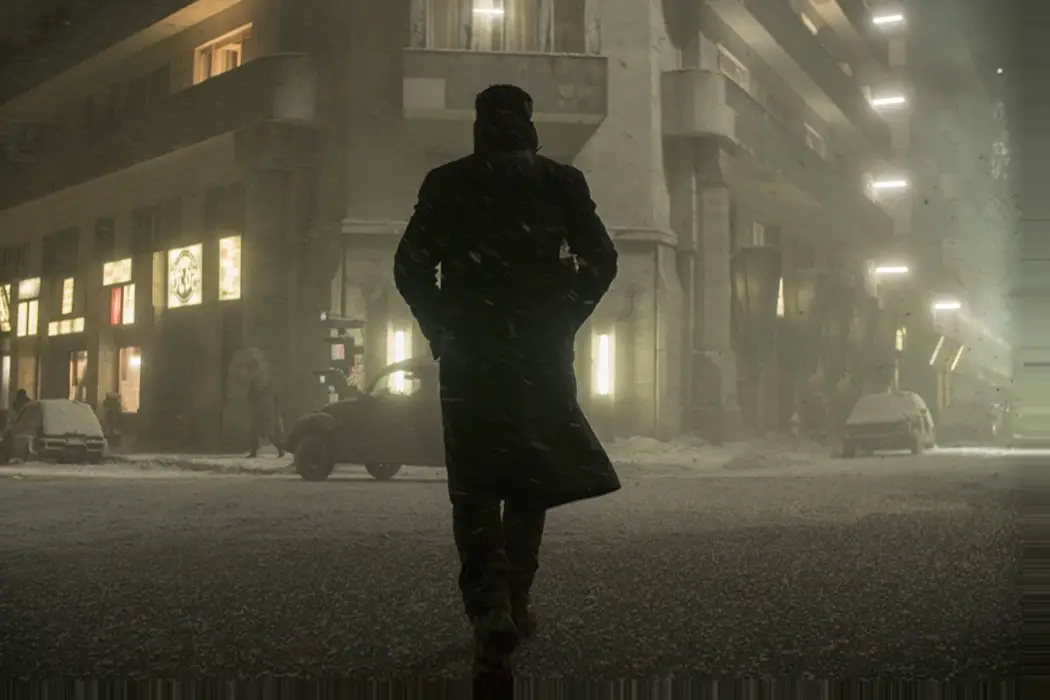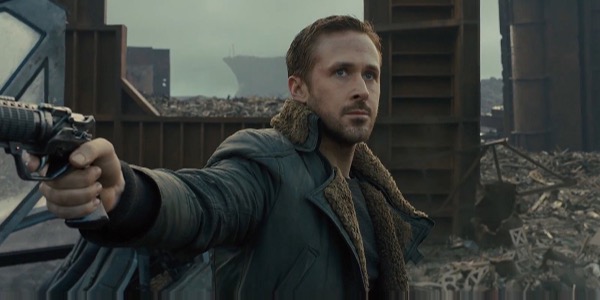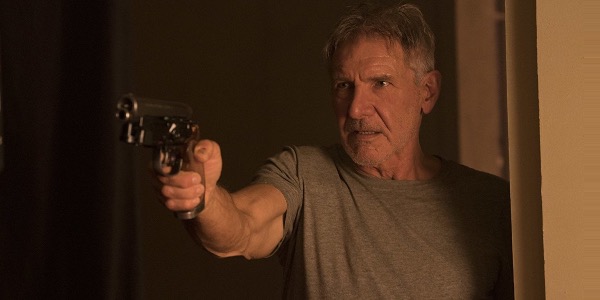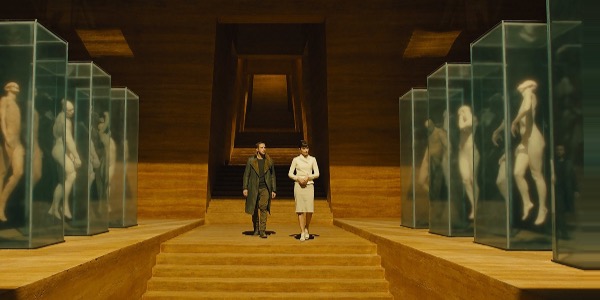BLADE RUNNER 2049: The Sci-Fi Spectacle You’ve Always Dreamed Of

Alistair is a 25 year old writer based in Cambridge.…
Despite its reputation as one of the greatest science fiction films ever made, with a mythology that grows increasingly dense with each subsequent director’s cut, Blade Runner is, at its heart, a simple noir tale that has been told countless times before. The real joy of Ridley Scott’s film (the finest in his eclectic back catalogue) is seeing these tropes transplanted into an immaculately designed future dystopia, then combined with an existential examination of what it truly means to be human.
Blade Runner is by no means as thoughtfully dense as many of its biggest supporters, and quite a few of its detractors, would have you believe. The same couldn’t be said of Denis Villeneuve’s Blade Runner 2049, which builds upon that mythology in head spinning ways to create the rare decades in the making sequel that’s every bit as an artistic accomplishment as its predecessor, but for completely different reasons.
A More than Worthy Sequel
In the year 2049, K (Ryan Gosling), a new model of blade runner designed to obey all orders, is investigating a replicant freedom movement, where he finds evidence that replicants may be more genetically advanced than previously thought. His supervisor at the LAPD (Robin Wright) asks him to dispose of all evidence, but his curiosity at this new breed of replicant leads him to the offices of manufacturer Niander Wallace (Jared Leto), where he learns of a connection to a long retired blade runner Rick Deckard (Harrison Ford) – and finds himself at the centre of a conspiracy that is being desperately fought to be revealed.

The trick to Villeneuve’s film is that it never feels like a fan servicing Blade Runner sequel. It feels like a Denis Villeneuve film first and foremost, that just coincidentally happens to be a deeper exploration of the world and the dense mythology originally brought to the screen three decades prior. Villeneuve is undeniably the most aesthetically accomplished director working today; every single shot in Roger Deakins’ pitch perfect cinematography, every single reverberating blast of noise on Hans Zimmer’s score, every single movement made by the actors (even the manner in which they merely walk across the screen), it all feels deliberately and meticulously calibrated by a perfectionist at work.
His command of cinematic grammar is awe-inspiring, often leaving the audience to feel like they are watching an orchestra conductor, so perfectly does he manage to integrate the actors in to their surreal and beautifully framed surroundings, perfectly timing the soundtrack to their movements via everything from the intense, propulsive score to the quiet sound of footsteps.
Following on from Arrival, there is no denying that Villeneuve’s attention to detail when it comes to sound editing and mixing is what makes him the finest director of cinematic spectacle in business; nobody else is as ceaselessly experimental on a nine figure budget. A sequence at a rundown Las Vegas casino, soundtracked by a malfunctioning Elvis hologram, is breathtaking in this regard due to how it refuses to follow the “norms” of cinematic sound editing – yet feels all the more tangible and realistic because of it.
Expands the world and deeper explores the themes within it
But despite the slow burning, deliberately mannered style, Blade Runner 2049 works because it is equal parts thoughtful and quietly moving. Like Arrival, where deliberate aesthetic choices never got in the way of an emotional narrative, here Villeneuve explores the wonder of human emotional connections via those who are unable to form them organically. This is best explored via Gosling’s character K, a new breed of replicant blade runner, who has a relationship with a sentient piece of software named Joi, played in a moving performance by Ana De Armas. As odd as it sounds, this manages to infuse the film with a rush of tear jerking emotion, even as it exists as a mere side narrative.

Villeneuve and his screenwriters Hampton Fancher and Michael Green already know that this subject has been explored extensively in recent years, most notably in Spike Jonze’s the film’s themes in a manner that efficiently refutes the claim that science fiction is inherently a “cold” genre. One of Blade Runner 2049 ’s most moving sequences calls back to the nightmarish prostitute scene in Her, but here, it’s treated lovingly, filmed in an otherworldly uncanny valley manner that still doesn’t detract from the rush of emotions the scene delivers.
Although this is more heavy on the science fiction aspects than the original, Villeneuve still embraces the noir elements. The screenplay is heavy with hard boiled dialogue that could easily have been included in an earlier genre hallmark, even though this time around, the noir-inflected storyline does sometimes appear to be a mere McGuffin that leads the audience to pondering Blade Runner 2049 ’s themes, and big existential questions.
For many science fiction fans, this will prove to be the holy grail when it comes to special effects. The futuristic visions of a post-apocalyptic America have never been brought to the screen in such a tangible, tactile manner before – Deakins’ cinematography manages to effortlessly make millions of dollars of visual effects feel like a realistic glimpse at a smog filled future Los Angeles. In a year where the live action Ghost in the Shell reboot offered a future cityscape (inspired by Blade Runner, no less) that looked overwhelmingly fake, the stunning, meticulously created designs here are the stuff of dreams for nerds and cinephiles the world over.

I’m deliberately evading discussing the central narrative and the roles of many actors within it, as it comes with delicately handled twists and turns that are best experienced cold. However, I can’t evade discussion of the sole criticism I have of Blade Runner 2049 ; although the ending (which I won’t discuss any elements of) left me walking out of the auditorium on a cinematic high, its open ended nature is a worrying sign that planned sequels could be in the pipeline. Villeneuve claims to have never had more than one film in his mind when making this sequel, but Ridley Scott’s recent comments that there is “enough material for four films” are worth worrying about.
Villeneuve has achieved the impossible by making a sequel worthy to be in the same canon as the feted original, fleshing out the universe and delivering a breathtaking new narrative that effortlessly compliments the older film. A sequel to this could ruin all that is sacred about the two films to date – especially as its threatening to head in the direction of a popular dystopian franchise that released its final entry earlier this summer.
Blade Runner 2049: Conclusion
Those expecting a Prometheus-level disappointment from this return to Ridley Scott’s other classic science fiction creation need not worry. In the hands of a director at the top of his game, Blade Runner 2049 is a blockbuster with brains, heart and an abundance of style, that will certainly reward repeat viewings. It took three different attempts and over 20 years for Scott to perfect Blade Runner. Villeneuve has knocked it out the park on the first attempt – he may just be the most accomplished director working on this level today.
What are the best science fiction sequels of all time? Tell us your thoughts in the comments below!
Blade Runner 2049 is in UK and US cinemas now. For all international release dates, see here.
Does content like this matter to you?
Become a Member and support film journalism. Unlock access to all of Film Inquiry`s great articles. Join a community of like-minded readers who are passionate about cinema - get access to our private members Network, give back to independent filmmakers, and more.
Alistair is a 25 year old writer based in Cambridge. He has been writing about film since the start of 2014, and in addition to Film Inquiry, regularly contributes to Gay Essential and The Digital Fix, with additional bylines in Film Stories, the BFI and Vague Visages. Because of his work for Film Inquiry, he is a recognised member of GALECA, the Gay & Lesbian Entertainment Critics' Association.













